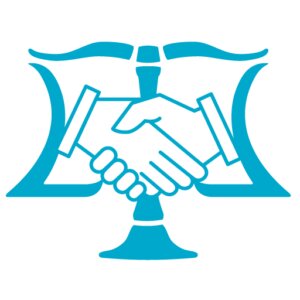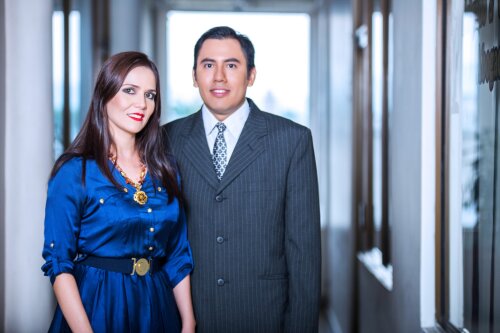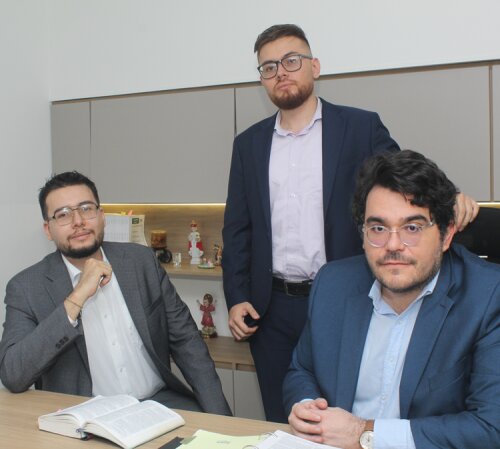Best Discrimination Lawyers in Bucaramanga
Share your needs with us, get contacted by law firms.
Free. Takes 2 min.
List of the best lawyers in Bucaramanga, Colombia
About Discrimination Law in Bucaramanga, Colombia
Discrimination in Bucaramanga, as in the rest of Colombia, refers to unfair or unequal treatment of individuals or groups based on characteristics such as race, gender, religion, age, disability, sexual orientation, nationality, or socioeconomic status. Both Colombian law and international conventions prohibit discrimination, working to ensure equal treatment for all people in public and private spaces. In Bucaramanga, the local authorities, civil society, and legal professionals collaborate to prevent, identify, and address instances of discrimination, with the aim of fostering an inclusive and respectful community.
Why You May Need a Lawyer
Many people in Bucaramanga seek the help of a lawyer when they believe they have been subjected to unfair or discriminatory treatment. Some common situations include:
- Experiencing discrimination in the workplace, such as being denied employment opportunities or promotions due to personal characteristics
- Facing discrimination when seeking access to public services or spaces
- Encountering discriminatory acts in educational institutions or housing
- Being the subject of hate speech or harassment based on protected attributes
- Having difficulty understanding legal rights or filing formal complaints about discriminatory incidents
A lawyer can explain your rights, guide you through the complaint process, gather evidence, and represent you before authorities or in court if necessary.
Local Laws Overview
The Constitution of Colombia is the primary legal framework that guarantees equality and prohibits discrimination. Articles 13 and 53 specifically address the rights to equality and to work, ensuring protection against discrimination based on gender, race, national or family origin, language, religion, political or philosophical opinions. Additional protections are found in statutes such as Law 1482 of 2011, which criminalizes discrimination and outlines sanctions for discriminatory acts in various areas, including employment, education, and services.
Bucaramanga adheres to these national laws while also supporting local policies promoting inclusion and diversity. Victims of discrimination can file complaints with local authorities, the Office of the Public Defender - Defensoría del Pueblo - or directly with the Prosecutor’s Office. Employers, schools, and public entities are under a legal obligation to prevent and address discriminatory acts within their institutions.
Frequently Asked Questions
What counts as discrimination under Colombian law?
Discrimination involves denying a person or group opportunities or fair treatment based on characteristics such as race, sex, age, religion, disability, sexual orientation, or other protected attributes.
Where can I report discrimination in Bucaramanga?
You can file a complaint with the Defensoría del Pueblo, Inspectoría de Trabajo, Fiscalía General de la Nación (Attorney General's Office), or even directly with your employer or educational institution depending on the context.
Can I take legal action if I face discrimination at work?
Yes, labor law in Colombia allows you to contest discriminatory treatment, including through formal complaints to the Ministry of Labor or civil or criminal proceedings if the situation warrants.
What evidence do I need for a discrimination case?
Relevant evidence may include written records, testimonies, communication (such as messages or emails), witness statements, and any official documentation showing discriminatory action or intent.
What are the penalties for discrimination?
Under Law 1482 of 2011, penalties for proven discrimination include fines and possible imprisonment, depending on the severity and specific circumstances.
Can discrimination be based on multiple factors?
Yes. Discrimination can be intersectional, involving more than one protected characteristic, such as age and gender or race and disability.
What is the role of the Defensoría del Pueblo?
The Defensoría del Pueblo offers guidance, mediation, and support in cases of discrimination, helping individuals understand their rights and facilitating complaints.
Are there deadlines for reporting discrimination?
Yes. It is best to act promptly. There may be statutory limitations depending on whether the discrimination leads to administrative, civil, or criminal proceedings.
Do I have to pay for legal help?
Some support, like that of the Defensoría del Pueblo or free legal clinics, is provided at no cost. However, hiring a private lawyer may involve fees, which vary depending on the complexity of the case.
Can organizations also be held accountable for discrimination?
Yes. Both individuals and organizations, such as businesses, schools, and government agencies, can be held legally liable for acts of discrimination under Colombian law.
Additional Resources
If you need assistance or want to learn more, the following resources are available in Bucaramanga:
- Defensoría del Pueblo (Ombudsman’s Office) - Offers support and receives complaints about discrimination
- Procuraduría General de la Nación - Oversees public servants and public sector discrimination
- Ministerio de Trabajo - Handles employment discrimination
- Fiscalía General de la Nación - Manages criminal cases arising from discrimination
- Local law faculties and legal clinics - Many universities in Bucaramanga offer free or low-cost legal advice on human rights and discrimination matters
- Civil society organizations - Several NGOs provide support, education, and legal assistance related to discrimination
Next Steps
If you believe you have experienced discrimination in Bucaramanga, consider taking the following steps:
- Document the incident as thoroughly as possible, including collecting any available evidence
- Contact relevant authorities or legal aid organizations for guidance and support
- Consult with a lawyer specialized in discrimination or human rights law for specific advice on your case
- If necessary, file a formal complaint with the appropriate public body or initiate legal proceedings
- Follow up regularly on the progress of your case and keep records of all communications and filings
Taking swift and informed action is crucial to protect your rights and seek remedies for discrimination. Legal professionals can help guide you through each step and ensure your case receives fair and thorough consideration.
Lawzana helps you find the best lawyers and law firms in Bucaramanga through a curated and pre-screened list of qualified legal professionals. Our platform offers rankings and detailed profiles of attorneys and law firms, allowing you to compare based on practice areas, including Discrimination, experience, and client feedback.
Each profile includes a description of the firm's areas of practice, client reviews, team members and partners, year of establishment, spoken languages, office locations, contact information, social media presence, and any published articles or resources. Most firms on our platform speak English and are experienced in both local and international legal matters.
Get a quote from top-rated law firms in Bucaramanga, Colombia — quickly, securely, and without unnecessary hassle.
Disclaimer:
The information provided on this page is for general informational purposes only and does not constitute legal advice. While we strive to ensure the accuracy and relevance of the content, legal information may change over time, and interpretations of the law can vary. You should always consult with a qualified legal professional for advice specific to your situation.
We disclaim all liability for actions taken or not taken based on the content of this page. If you believe any information is incorrect or outdated, please contact us, and we will review and update it where appropriate.












